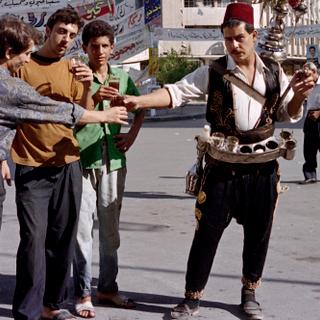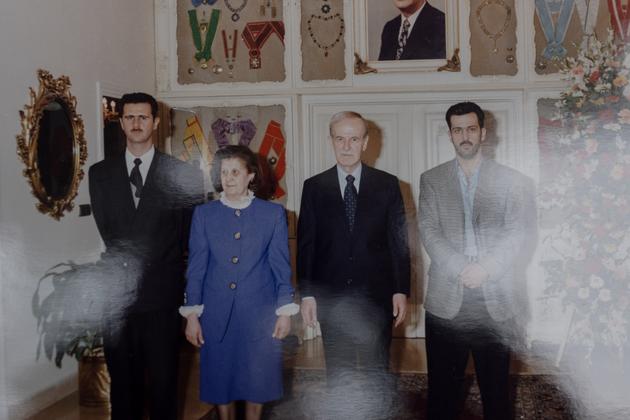
By Gilles Paris
Subscribers only
Series‘The al-Assad saga’ (Part 3/4). Amid the fall of the Berlin Wall, the Iran-Iraq war, the Gulf War and talks with Israel, Hafez al-Assad’s top priority was always to have one of his sons succeed him, even if this meant sacrificing his country and people.
Hafez al-Assad, when challenged by his brother Rifaat after a brief stay in hospital, in November 1983, eventually resolved the internal crisis – the most serious one in his regime’s history – in his favor, in February 1984. That was the moment when his eldest son, Bassel, entered the spotlight for the first time. He was at his father’s side when the Syrian president visited his rival in Damascus, the country’s capital, where the two factions, each backed by their respective armed forces, were locked in confrontation. At 21, the president’s eldest son was far from being able to exert any influence over the regime’s powerbrokers, who had spent more than a decade entrenched in key positions within Syria’s “securitocracy” or the Baath Party. Yet, shaken by the ordeal, Hafez al-Assad chose Bassel as his successor.
The Syrian president would never admit he had been rattled. When questioned about a possible successor after the crisis, he merely outlined the process set by the Syrian Constitution, which stipulated that the minimum age required to run for the presidency was 40 years old. Paradoxically, this formal requirement had shielded Bassel al-Assad during the early years of his rise within the military ranks. As he rose up through the military hierarchy and built connections with his generation of regional leaders, president al-Assad’s eldest son gradually came to symbolize the possibility of the regime’s modernization.

This modernization, however, would only be considered within an authoritarian system. Once, when a more skilled horseback rider overshadowed the president’s son, who had won numerous show jumping competitions, he was thrown into prison – without a trial – where he languished for over 20 years.
You have 84.2% of this article left to read. The rest is for subscribers only.
Lecture restreinte
Votre abonnement n’autorise pas la lecture de cet article
Pour plus d’informations, merci de contacter notre service commercial.
